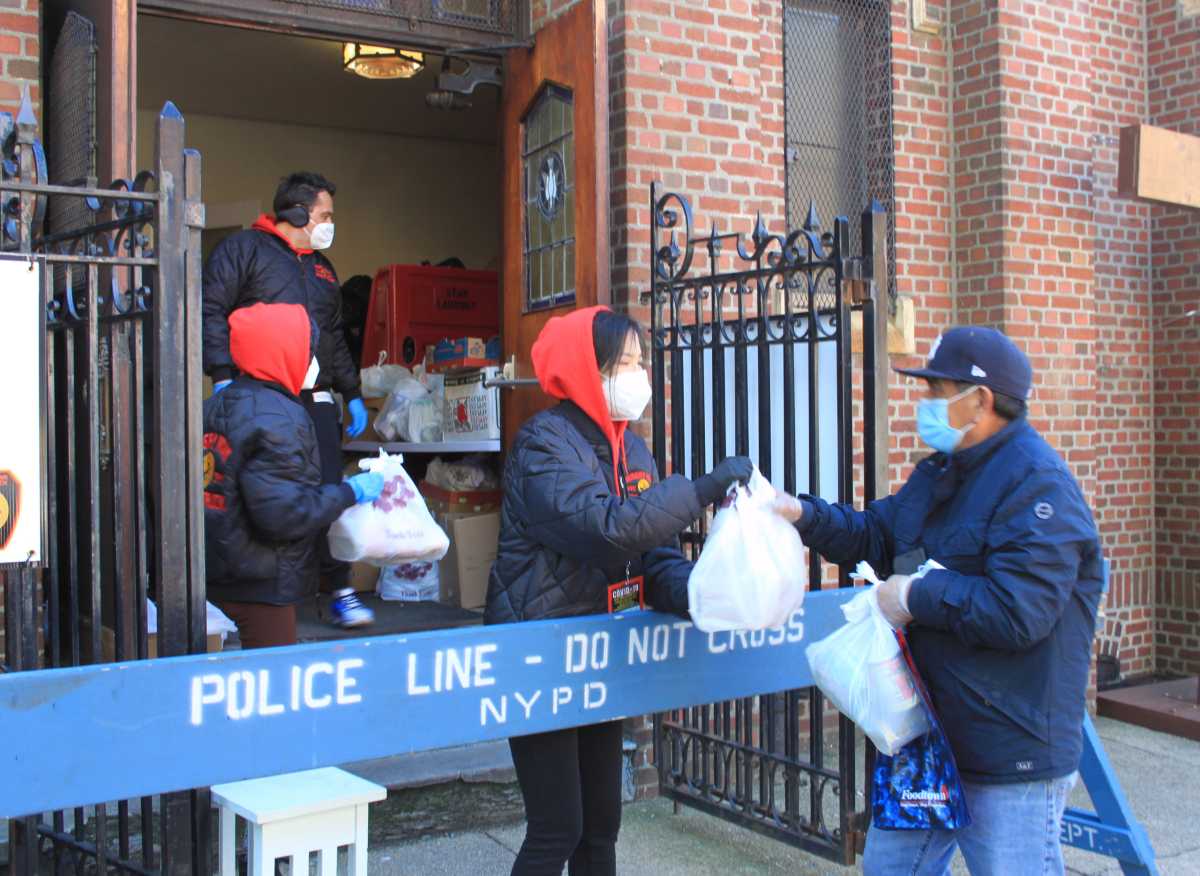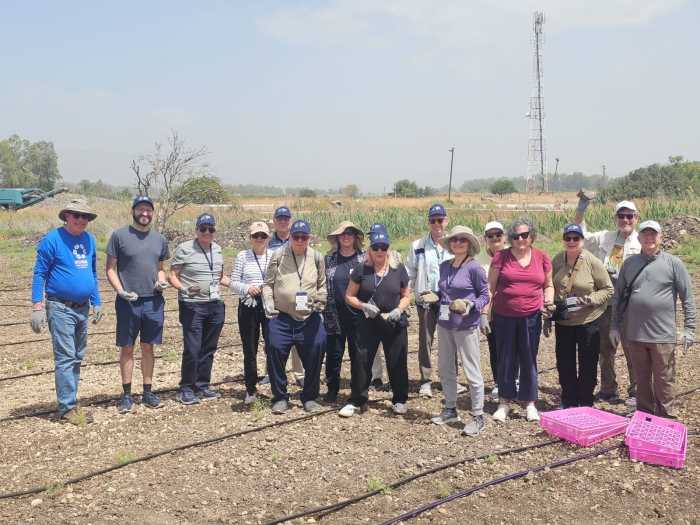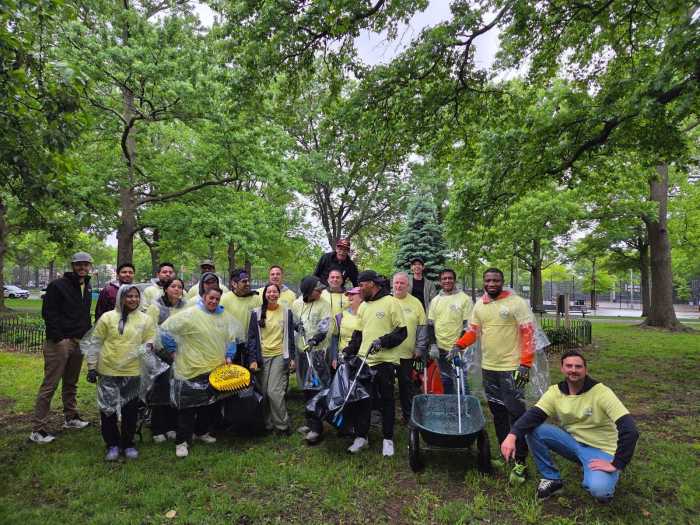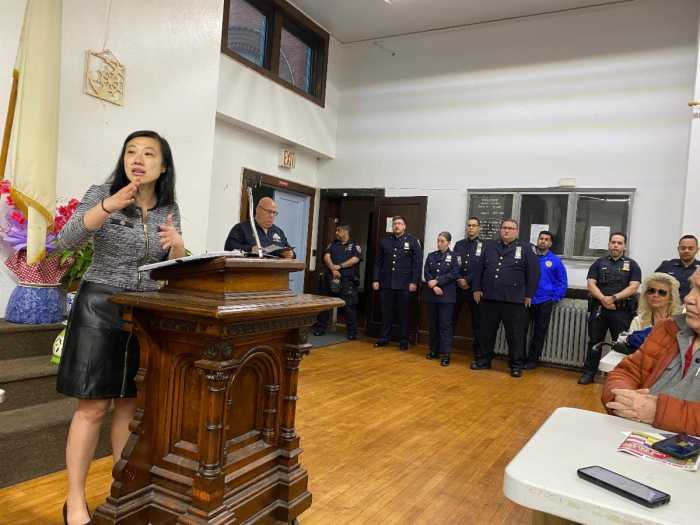Ridgewood food pantries are struggling to meet the demand after City Hall drastically decreased funding as they reassess the current needs of pantries before fiscal year 2022-2023.
The Pandemic Food Reserve Emergency Distribution Program (P-FRED) was established in 2020 to distribute fresh and shelf-stable food to over 400 feeding programs in the city as the COVID-19 pandemic increased food insecurity. Before Mayor Eric Adams was inaugurated, food pantry organizers in Ridgewood worried whether his administration would continue to prioritize this program.
Matt Peterson from Woodbine, a local food pantry in Ridgewood, said that even though the city is no longer in the throes of the pandemic, families still need a lot of help.
“There’s this tendency to want to move on from the pandemic and move on from the crisis, and for many people, they’re able to do that economically, but a lot of people can’t,” Peterson said. “The crisis is still felt by a lot of people in a deep way, including a lot of people in Ridgewood. Without P-FRED, we would be in a much tighter spot.”
Woodbine and Hungry Monk, along with pantries across the city, said they are receiving just more than the amount of funding they would typically use for one week to last until May. The fate of the P-FRED program is up in the air, leaving pantries scared and families desperate. According to Peterson, Woodbine was given a grant of $12,000 to last through April, though he said his pantry usually spends about $8,000 in just one week.
“They effectively cut the funding overnight with no real warning, notice or explanation and no communication about what’s next,” Peterson.
A City Hall spokesperson confirmed that the city is re-evaluating the need for the P-FRED program.
“Food pantries have been a lifeline for New Yorkers facing food insecurity, especially during the pandemic,” the City Hall spokesperson said in a statement to QNS. “We are evaluating shifting needs and funding options through the budget process and look forward to engaging with our partners at the state and federal levels to ensure these institutions have resources to continue serving New Yorkers in need.”
Local pantries say there is no need to reassess the need since they are still seeing huge waves of families coming through their facilities every week.
Father Mike Lopez, the leader of Hungry Monk, said that he found out about this news, not by any official communication from the city, but when his food orders just didn’t show up.
“We had nothing. We were closed. This was the first time since March 2020 we didn’t have a fully stocked pantry,” Lopez said. “The fact that we’re not able to get food out to our people is the hardest part.”
Lopez doesn’t deny that the need for food has decreased since the height of the pandemic. However, he called on the city to realize there are still lingering economic hardships along with inflation costs making it nearly impossible for struggling families.
“At the height of the pandemic, [we served] 10,000 families a week and now we’re doing around 3,500 families a week,” Lopez said. “There was food insecurity pre-pandemic. It went up during the pandemic, and it’s still up now. With gas prices changing and food prices, people don’t have the resources to make ends meet at the grocery stores.”
Lopez said his pantry serves people from all over the city, not just Ridgewood. He added that with his new budget, he will only be able to operate for one more day.
Maria Pérez said she and her family rely heavily on Hungry Monk as a single mom with a disabled child. Pérez shared that without the food Hungry Monk provides twice a week, her family would go hungry.
“I can only work part-time and I don’t have papers,” Pérez said. “I am an immigrant and have lived here for 15 years. As prices for food have risen so much, I will have no choice but to feed my children and miss meals for myself.”
In an email to pantries across the city, the Human Resources Administration, which oversees P-FRED, said the program was supplemental during the pandemic but is “winding down.”
“We understand that these allocations are much lower than very recent P-FRED demand, but we are pleased that we were able to work within our budget to ensure we can continue to provide some supplemental produce until our new [Emergency Food Assistance Program] contracts are in place,” said the email.
The city will decide on the fiscal budget by July 1. Until then, pantries are in the dark, unsure of whether they will still receive supplemental funding from the city which has helped so many families survive.



































